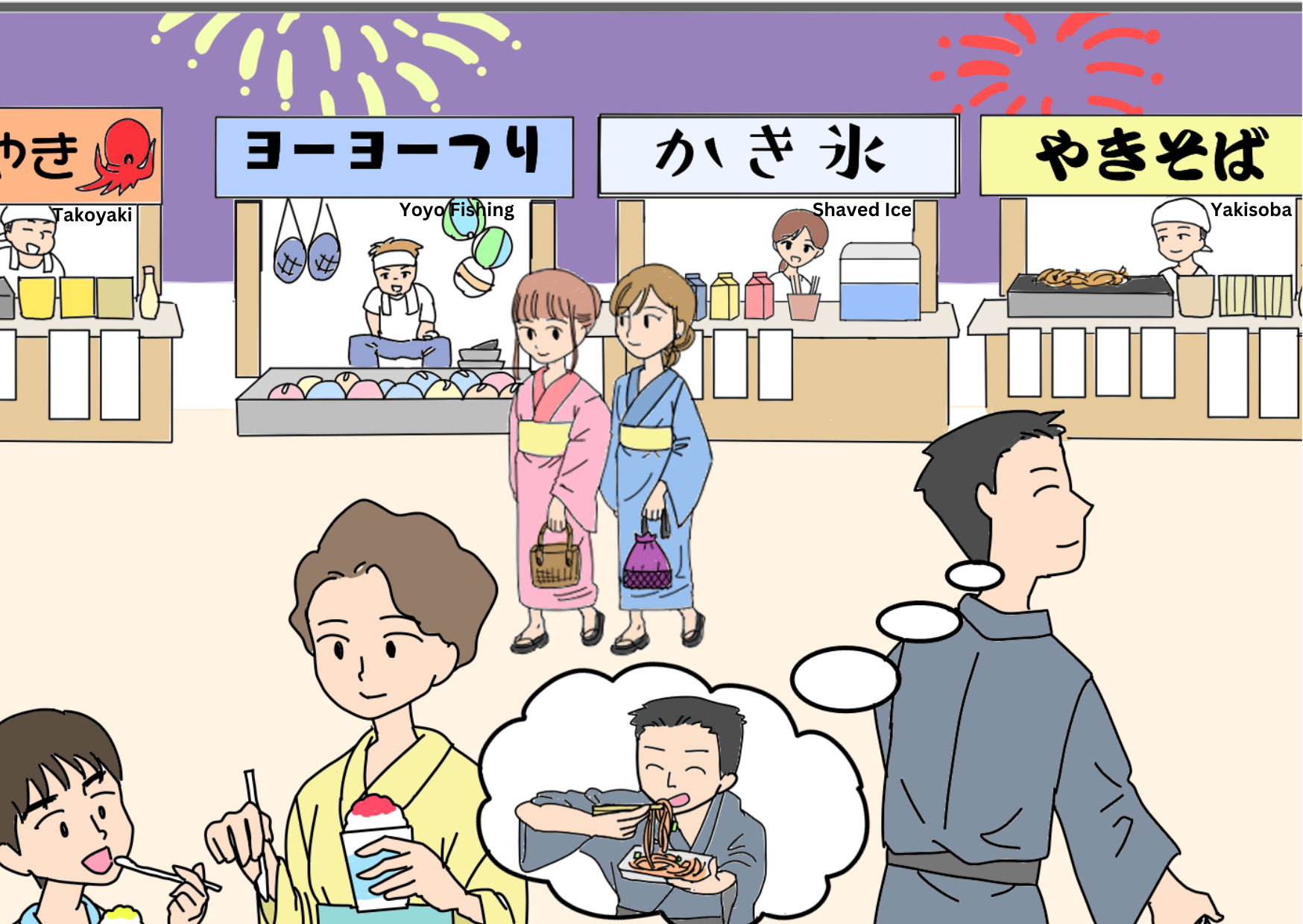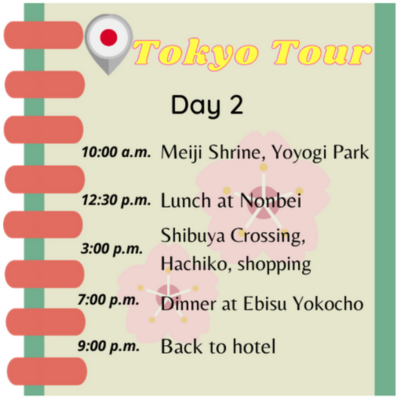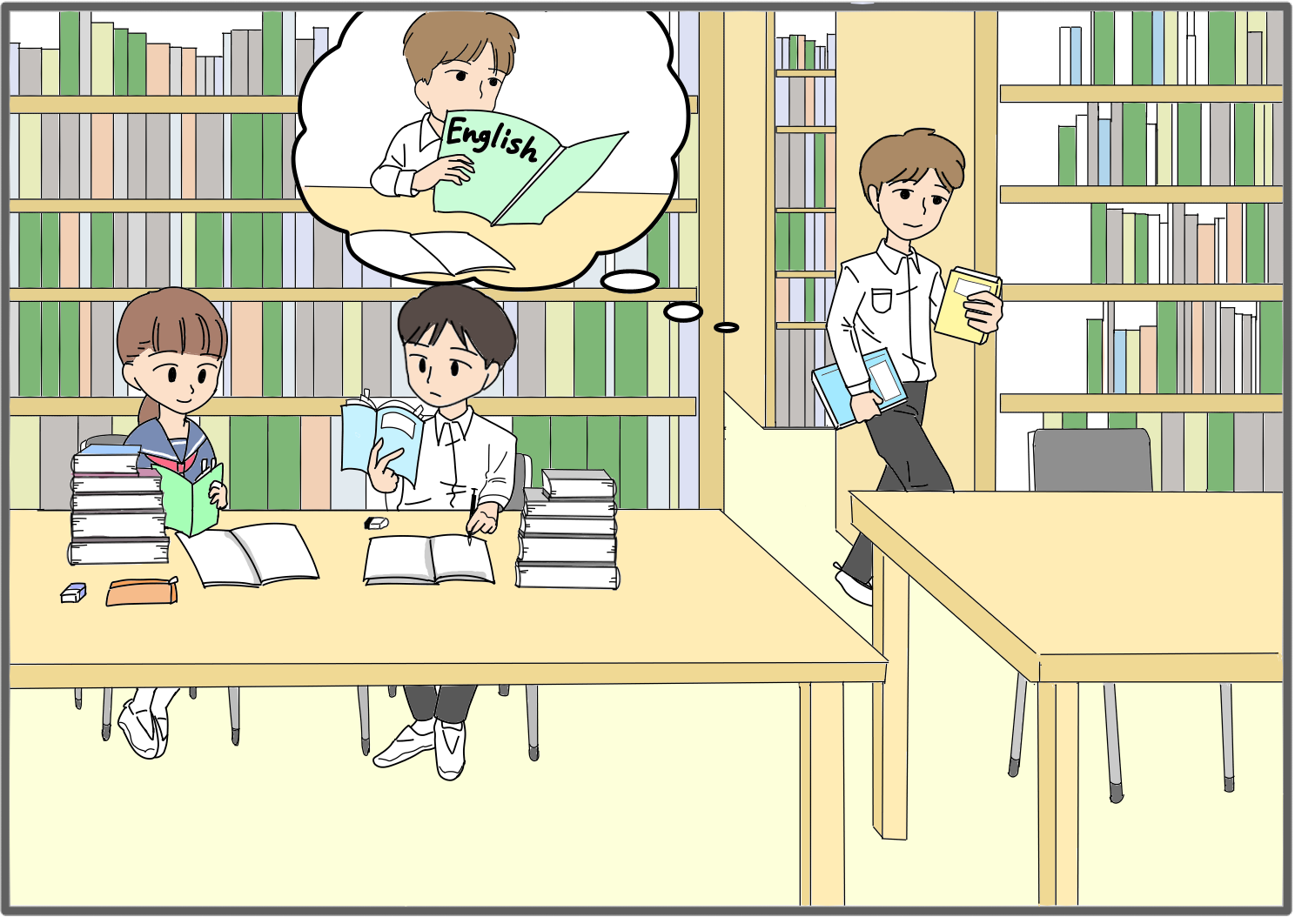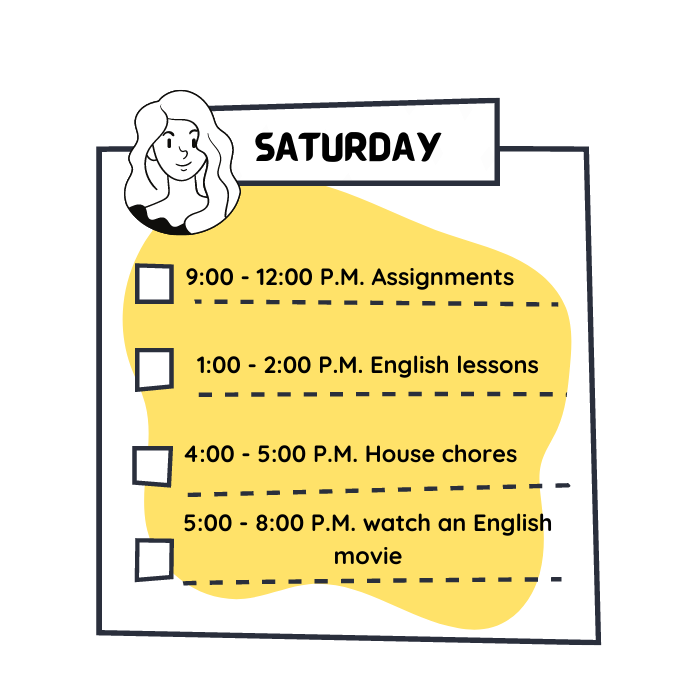PART A_1
Let’s learn new vocabulary. Listen and repeat these words with your tutor.
PART A_2
| 1. profound 深い、深遠な | |
| His feelings for her are profound. He will probably marry her soon. | |
| 2. meticulous 細かいことによく気を配る | |
| Alex is a meticulous person. She checks every detail of her work. | |
| 3. live up to a person’s expectations 人の期待にこたえる | |
| Our daughter studies really hard. I have no doubt that she will live up to our expectations. | |
| 4. cream of the crop 最高[最良]のもの | |
| Harold got the highest score in the exam. He is the cream of the crop of his batch. | |
| 5. flying colors 大成功を収めて、見事に | |
| Shane graduated from college with flying colors. She received the highest award of all. | |
PART A_3
Let’s make sentences using the vocabulary we’ve just learned.
PART A_4
| 1. profound | |
| Answer: | |
| 2. meticulous | |
| Answer: | |
| 3. live up to a person’s expectations | |
| Answer: | |
| 4. cream of the crop | |
| Answer: | |
| 5. flying colors | |
| Answer: | |
PART B_1
Let’s read the dialogue. I will play Ron and you will play Emma. Then, we’ll switch roles.
PART B_2

Good morning, Emma! It’s nice to see you here!
|
|
Hi, Ron! How are you doing?
|

I’m doing great! I’m now happily married with three children. How about you?
|
|
I’m doing fine as well. I now have a son who is attending cram school.
|

I see! I have actually been thinking of enrolling my children in a cram school. Can you tell me more about it?
|
|
Sure! What do you want to know?
|

What do children exactly do in a cram school?
|
|
Well, a cram school is a specialized school that meticulously trains
students to be the cream of the crop, and ace entrance examinations for universities.
|

Wow, that sounds incredible! It must be difficult for them to live up to our expectations.
|
|
I agree, and enrolling them in cram schools will definitely help them
graduate with flying colors. The training they receive is profound and will be useful in the future.
|

Okay, now I am convinced. I think I’ll enroll my children in cram school soon! Thank you, Emma!
|
|
No problem, Ron! It was my pleasure.
|
PART C_1
Please summarize the conversation using your own words and expressions.
PART C_2
PART D_1
Fill in the blanks and complete the conversation.
PART D_2
| 1. | A: Sofia always aces her tests. I really wish to be like her. B: Me too. Her ________________ knowledge is something I really adore. |
| 2. | A: It is so difficult to be a top performing student. You always have to ________________. B: That is exactly true. You have to please everyone and not disappoint them. |
| 3. | A: As a leader, I am ________________ about every work we’ll submit, that is why I need everyone’s cooperation. B: You have our full attentiveness and active participation in every task we’ll perform. |
| 4. | A: Are you joining the quiz bee tomorrow? B: No. I don’t think I’ll be qualified because only the ________________ of our batch gets to participate. |
| 5. | A: What is your goal this school year? B: My goal is to make my parents proud by graduating with ________________. |
PART E_1
Let’s do a roleplay. Talk with me according to the situation below, using the expressions you just learned.
PART E_2
It is your first day in cram school. Discuss your expectations with your tutor, who will act as one of your classmates.
PART E_3
REVIEW AND FEEDBACK
Now, let us review the things that you learned in this lesson.
ではこのレッスンで学んだことを振り返りましょう。
(Please give a short feedback on how your student did on your class.)
| Grammar 文法 |
Pronunciation 発音 | Vocabulary 単語 |
Comprehension 理解 |
|
|---|---|---|---|---|
 GOOD GOOD |
文法の誤りはほとんどなく、完全な文章で話すことができる | ほとんどの単語をはっきりと正しく発音することができる | 習った表現を適切に使うことができる | 文章を理解し、質問に正しく答えることができる |
 FAIR |
文法の誤りはあるが、完全な文章で話すことができる | 発音の練習が必要な言葉がいくつかある | たまにミスはあるが、習った表現を適切に使うことができる | 文章を完全に理解するのは難しく、質問に正しく答えられないときもある |
 POOR |
文章で話すのは難しく、単語だけで話すことができる | 発音の練習が必要である | 習った単語と表現を少しだけ使うことができる | 文章を理解するのは難しく、質問に答えるのは難しい |



















































